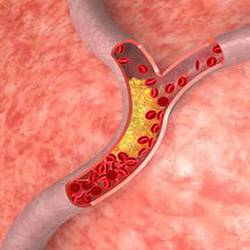Using Acu-Cell Cellular Technology to establish Nutritional Requirements for Trace Minerals and other Nutrients
| Cellular Nutrition
From routine annual physicals to emergency hospitalization, blood tests are viewed as important tools to help arrive at a medical diagnosis, and later to monitor the progress of various treatments prescribed. While there is the advantage that blood samples may be taken on a live or dead body, with or without consent, and under various other circumstances, they suffer from many flaws in regard to establishing nutritional requirements on an individual basis, and especially with patients who fall outside the so-called "normal" range.
Medical science is well aware of the many limitations, i.e. close mineral tolerances in serum [1] samples that are frequently maintained when patients are seemingly healthy, when they go through a medical crises, or when they are terminally ill. Unfortunately, this delays or prevents a more accurate diagnosis, or it requires other, perhaps more expensive diagnostic tools - to the detriment of the patient and the efficiency and cost of the Health Care System.
As changes in lifestyle, diet, stress, genetics, injuries or aging start to affect a person's well-being, intracellular chemistry reflects many of these changes through variations in nutritional levels, abnormal mineral ratios, or general biochemical imbalances. Blood chemistry on the other hand - with some exceptions - remains largely unchanged and unaffected, and would give a patient a clean bill of health. Conventional medicine would now offer the patient a vast array of pharmacological solutions, aimed at alleviating the medical "symptoms", and any side effects that should arise from the treatments.
The more sensible approach for a patient would be to consult a practitioner, who has the resources to pinpoint the actual intracellular problem areas instead, and to resolve any chemical excesses, deficiencies, or imbalances nutritionally. If indicated, chiropractic / spinal manipulation, (electro)-acupuncture, or health spas for more stress-related episodes could be another consideration.
Gene Therapy promised to be a radically different approach in the treatment of genetically-driven diseases, however the technology has been successfully used for just a limited number of disorders, so at this time, its implementation is yet futuristic for most medical conditions.
Although intracellular measurements have a much larger test range compared to serum panels, the actual reference or "healthy" range is much narrower with Acu-Cell Analysis, even in comparison to Red Blood Cell or White Blood Cell Analysis since it establishes the most person-specific values by using the patient's own genetic reference. As a result, Acu-Cell Technology represents one of the most cost-efficient and accurate tools to:

- Established optimal nutritional requirements within the tested criteria,
- Measured the cellular effects of various diets, supplements, or drugs,
- Assessed the impact of disease processes on biochemical levels (and vice versa),
- Monitored an individual's nutritional status for maintenance.
The measuring technique is based on testing the evoked nerve point potential of all cell receptors which correspond to essential trace minerals. The calculated average is used to establish a reference range and mineral ratio profile. Measurements can be taken along the spine (done in veterinarian medicine), or at the extremities in human patients. The measuring current is limited to a few micro amps, which is totally painless and harmless, even when testing infants or patients with pacemakers.
Each electric nerve potential varies with the intracellular level of the nutrient it corresponds to, and changes as the matching chemical is increased or decreased through supplementation, drugs, diet, and various disease processes. Under certain circumstances - particularly when excessively low - serum levels and cellular levels of trace minerals are quite close, however by nature, they represent different physiological and pathological processes, so they need to be interpreted differently.

When compared to serum, urine, saliva, or hair analysis, Acu-Cell Analysis will always reflect a patient's mineral and trace element status more accurately, since its values are genetically referenced to that patient. In contrast, blood tests are supposedly matched to 95% of the population average, although thyroid panels are one example of being well below that percentage, with actual patient symptoms being nowhere near 95% of matching serum values, while for instance potassium measurements are plagued with numerous false positives or false negatives as a result of improper blood collection, transport, hemolysis, or the type of processing used.
Calcium requirements are another of many other examples that cannot be established through conventional or routine blood tests, so recommendations are also based on population averages or estimates, instead of individual requirements. This of course can have disastrous consequences for patients who either suffer from any number of disorders that prevent normal calcium absorption, or for those who suffer from a calcium overload. Acu-Cell Analysis is also better equipped to detect pseudodeficiencies, where an excessive amount of one trace mineral triggers deficiency symptoms of another interactive trace element, despite the level of the "deficient" element being in the "normal" range. For instance, a common pseudodeficiency is experienced when excessive cellular levels of potassium trigger symptoms of a chromium deficiency (K being a Cr antagonist), resulting in a bladder or tonsil infection, which can be resolved without antibiotics by supplementing sufficient amounts of chelated chromium.
Serum or plasma measurements are unable to establish these deficiencies because in contrast to a cellular analysis, they lack the extended range necessary to establish a K / Cr ratio conflict, being limited by the homeostatic control of potassium. Acu-Cell Analysis, on the other hand, would not be suitable for antibody screening, nor is it as accurate for blood sugar, and other blood-specific measurements.

 Manganese may help with some symptoms of Parkinson's disease such as muscle rigidity and twitching...
Manganese may help with some symptoms of Parkinson's disease such as muscle rigidity and twitching...
 Research shows that phytosterols such as beta-sitosterol may help normalize the function of natural killer cells and T-helper lymphocytes...
Research shows that phytosterols such as beta-sitosterol may help normalize the function of natural killer cells and T-helper lymphocytes...
 Iron deficiency may be suspect with some forms of ADHD. 84% of children with ADHD were found to have abnormally low levels of ferritin...
Iron deficiency may be suspect with some forms of ADHD. 84% of children with ADHD were found to have abnormally low levels of ferritin...
 A high intake of B Vitamins can trigger heart palpitations, HBP, major complications in patients with congestive heart disease...
A high intake of B Vitamins can trigger heart palpitations, HBP, major complications in patients with congestive heart disease...